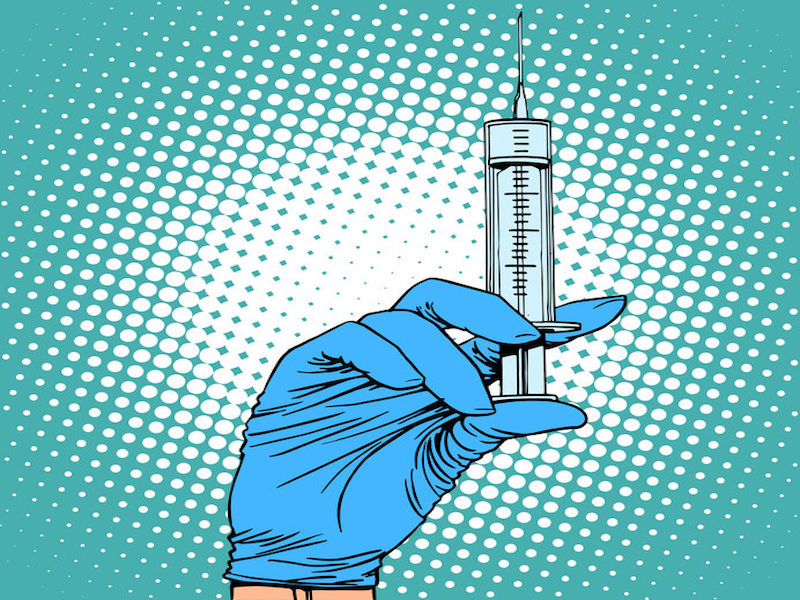

Canadian employers that were hoping to get back to business as usual this fall have had those hopes dashed as the second wave of the pandemic pummels hospitals, as well as bottom lines and return-to-office plans.
Our country is nowhere near herd immunity, which means without a safe and effective vaccine we’re still nowhere near returning to how things were. Canadian COVID-19 seroprevalence (the prevalence of the development of antibodies against the SARS-CoV-2 virus) is very low — according to current estimates, only between one and 2.6 per cent of the population have developed antibodies.
As well, nobody knows how long this immunity lasts. Although the vital role that a vaccine will play in getting life back to what we knew in 2019 is not news to anyone, it’s concerning to reflect on seroprevalence and realize we aren’t yet getting a big boost in immunity passively.
Read: Work from home decreasing in Canada, as U.S. moves to make it permanent: surveys
While there’s reason to be optimistic that progress is being made on the vaccine front, the earliest we expect to see a commercially available vaccine in Canada is late 2021 and it’s more likely that it won’t be until 2022 that a vaccine would be widely distributed to the working population. Business leaders and human resources professionals who are front-line in managing the workforce and health plan needs should expect 2021 to resemble the current environment.
There are more than 90 vaccines at the preclinical stage of testing and close to 40 in early stage trials. However, to date, only 11 vaccine candidates have made it to phase three trials to assess safety and efficacy. Only five of these 11 vaccines are from big names such as Pfizer Inc., AstraZeneca and Johnson & Johnson Inc. and, of concern to Canadian employers, none of these phase-three candidates are being tested in Canada.
Pfizer and Johnson & Johnson, which both have phase-three products being tested in tens of thousands of people, are among the front-runners in the race for a successful candidate. Each company has publicly stated it hopes to be able to manufacturer in the range of a billion doses in 2021. These are ambitious targets and everything will need to go right in the weeks and months ahead for that to happen, but there a few important considerations to temper expectations of employers hoping to bring employees back to the office any time soon.
Read: Head to head: Should remote working continue after the pandemic?
Many vaccine candidates are likely to be two-dose offerings, so successfully producing one billion doses in 2021 would only serve to treat 500 million people. How will those doses be distributed globally? Who will have priority access when those allotments are made? How long will it take to work through vaccines?
The U.S. Food and Drug Administration has stated it will approve vaccines that are safe that have efficacy of at least 50 per cent. That’s sobering. Basically, it means it’s quite possible an initial vaccine(s) that’s/are approved could fail in half the cases. The vaccines aren’t silver bullets. Case in point, both Johnson & Johnson and AstraZeneca have had to hit pause recently to examine whether illnesses in their trials pose any safety risks.
Some have pointed to vaccines being available in China and Russia as evidence that things don’t necessarily need to take this long and the suggestion of timelines of late 2021 or beyond is unnecessarily conservative. An important consideration here is that both of these countries have approved vaccines without waiting for the results of phase-three trials, which presents some very serious safety risks. How comfortable would you be vaccinating yourself (or your child, spouse or parent) with a vaccine rushed through the development process?
Health Canada has the power to provide emergency use authorization for a vaccine before formal approval, but that would likely be done in very discrete populations where benefits outweigh risks. In mid-September, the United Arab Emirates granted emergency approval to two vaccines from Sinopharm (a state-owned Chinese pharmaceutical manufacturer) for use on health-care workers.
Read: KPMG rolls out return-to-work app to support employee safety, well-being
The bottom line is there’s significant vaccine activity globally, but there’s no way to fast-forward safety and efficacy testing. Realistically, I feel that early 2022 is best case scenario for widespread vaccine distribution in Canada. For plan sponsors and their members, expectations that 2021 will be any different than 2020 will need to be modest.
Let’s all hope this column is proven wrong and we get there sooner.
